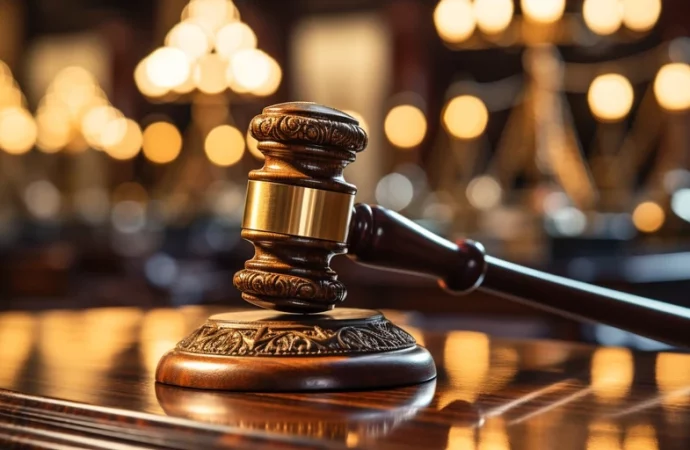Introduction The legal system is meant to be the backbone of justice in any society, ensuring fairness, equality, and protection for all. But does it always deliver what it promises? While the system has helped resolve countless disputes and protect rights, it also faces criticism for being slow, costly, and sometimes biased. Understanding how well
Introduction
The legal system is meant to be the backbone of justice in any society, ensuring fairness, equality, and protection for all. But does it always deliver what it promises? While the system has helped resolve countless disputes and protect rights, it also faces criticism for being slow, costly, and sometimes biased. Understanding how well the legal system works—and where it falls short—is essential for improving it. This article takes a closer look at its strengths, weaknesses, and the ongoing debate over whether justice is truly served.
The Purpose of the Legal System
At its core, the legal system exists to maintain order, protect rights, and resolve conflicts. It provides a structured process for handling criminal cases, civil disputes, and regulatory matters. In theory, it treats everyone equally, ensuring that laws are applied fairly regardless of social status, wealth, or background.
The system is also meant to deter wrongdoing by setting consequences for illegal actions. Ideally, this promotes trust among citizens and stability within society.
Strengths of the Legal System

Image by: Yandex.com
One of the system’s greatest strengths is its structured process. Courts follow established rules and procedures, making decisions based on evidence and law rather than personal opinion. This helps protect individuals from arbitrary treatment.
Another strength is the presence of checks and balances. Multiple levels of appeal allow people to challenge unfair rulings. Additionally, having independent judges and juries helps ensure that decisions are made without political influence.
The system also evolves over time. Laws can be updated, and landmark court cases can set new precedents that reflect changing social values.
Common Criticisms
Despite its strengths, the legal system is far from perfect. One major criticism is that it can be slow. Cases often take months or even years to reach a resolution, leaving people waiting for justice.
Cost is another problem. Legal representation, court fees, and other expenses can make justice unaffordable for many. This creates an imbalance where wealthier individuals or corporations may have an advantage in court.
Bias is also a concern. While the system aims for fairness, factors like race, gender, and economic status can sometimes influence outcomes. Unconscious bias in jury decisions or unequal access to skilled attorneys can affect the fairness of trials.
The Role of Lawyers and Judges
Lawyers play a crucial role in guiding clients through the legal process, preparing arguments, and presenting evidence. However, the quality of representation can vary widely depending on resources. Public defenders often handle large caseloads, which can limit the time they can spend on each case.
Judges are responsible for ensuring trials follow the law and for making rulings in certain cases. Their decisions carry significant weight, and while most strive for fairness, their interpretations of the law can differ, leading to inconsistent results.
Public Perception and Trust
Public trust in the legal system is essential for its effectiveness. When people believe the system is fair and unbiased, they are more likely to respect and follow the law. However, high-profile cases where justice seems absent can damage public confidence.
Transparency plays a big role in trust. Open court proceedings, access to legal information, and accountability for misconduct help strengthen the system’s credibility.
Access to Justice
One of the biggest challenges is ensuring that everyone has access to the legal system. Legal aid programs exist, but they often have limited funding and cannot assist everyone in need. This means that some individuals may be forced to represent themselves, which can put them at a disadvantage against more experienced lawyers.
Efforts to improve access include expanding free legal clinics, simplifying court procedures, and using technology to connect people with legal help.
Technology and Modernization
Technology is slowly transforming the legal system. Online court filings, virtual hearings, and legal research tools make processes faster and more accessible. Artificial intelligence is also being used to review documents, predict case outcomes, and streamline administrative tasks.
However, technology brings its own challenges, such as ensuring data privacy and making sure all citizens—especially those without internet access—can still participate fully in the process.
Reform Efforts
Many reform efforts focus on making the legal system more affordable, efficient, and fair. This includes reducing case backlogs, increasing funding for legal aid, and offering alternative dispute resolution methods like mediation or arbitration.
Criminal justice reform is also a major topic, with debates over sentencing laws, bail requirements, and prison conditions. The goal is to ensure that punishments fit the crime and that rehabilitation is prioritized alongside accountability.
Balancing Justice and Fairness
The effectiveness of the legal system ultimately depends on how well it balances justice with fairness. This means not only enforcing laws but also making sure those laws reflect the values and needs of society. It requires constant review, transparency, and willingness to adapt.
While the system cannot guarantee perfect outcomes in every case, its true measure lies in how often it can deliver fair resolutions and protect the rights of all people.
Conclusion
The legal system plays a critical role in maintaining order and protecting rights, but its effectiveness is shaped by how well it addresses issues like cost, bias, and accessibility. While it has clear strengths—such as established procedures and the ability to adapt—it also faces real challenges that can hinder justice. Ongoing reforms, transparency, and public trust are key to improving its performance. In the end, justice is best served when the system works for everyone, regardless of background or resources, and remains committed to fairness and equality.

















Leave a Comment
Your email address will not be published. Required fields are marked with *